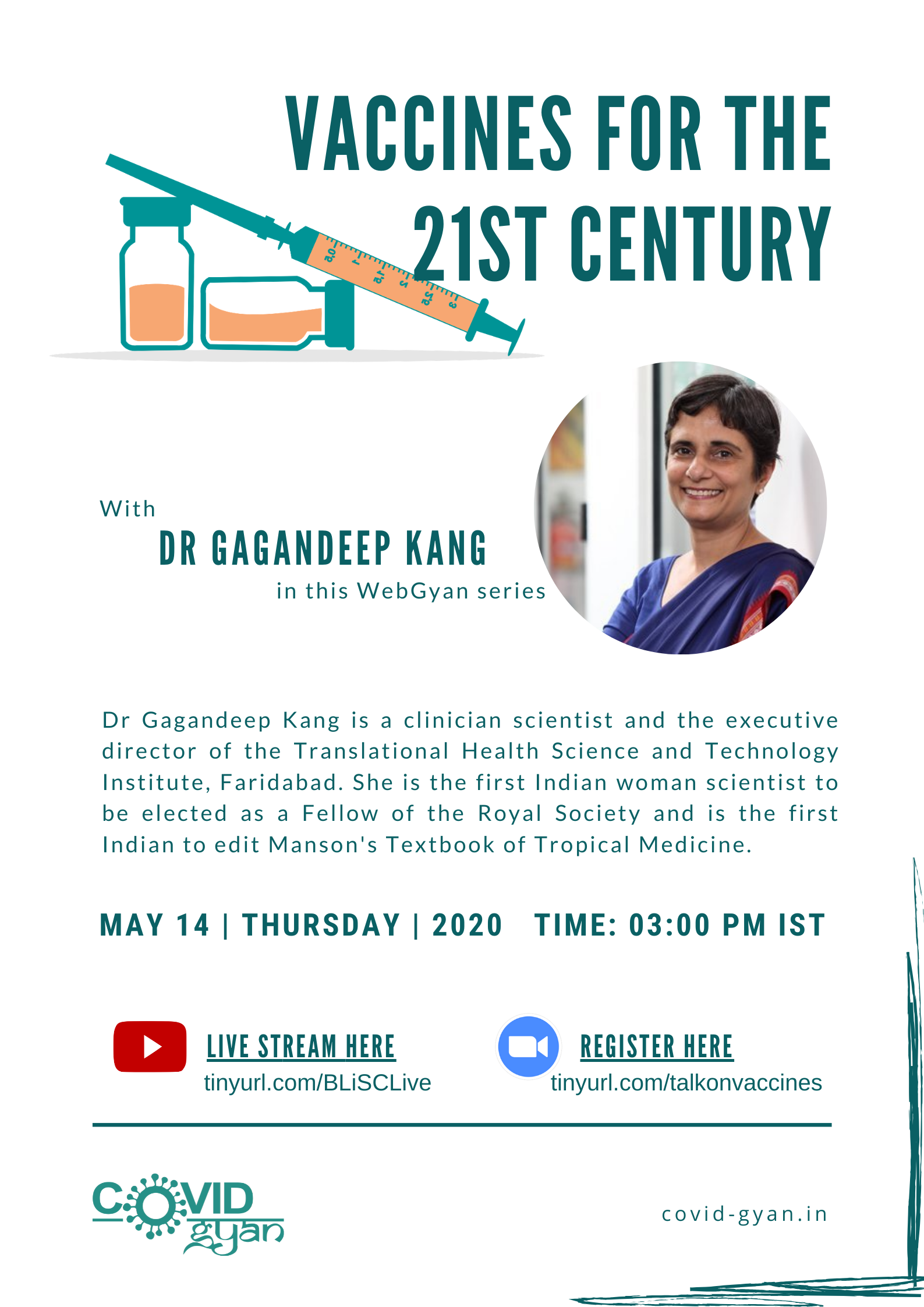A webinar on “Vaccines for the 21st century” by Prof. Gagandeep Kang (clinical scientist and executive director of the Translational Health Science and Technology Institute, Faridabad) was organised on May 14, 2020 by COVIDGyan as a part of its “WebGyan” series. Prof. Kang is the first Indian woman scientist to be elected as a Fellow of the Royal Society. She has worked on vaccines for rotavirus infections and enteric diseases such as cholera and typhoid.
Prof. Kang’s talk focused on the following points: an introduction to vaccines and vaccine development, the value of vaccines, new technologies, the role of the Coalition for Epidemic Preparedness Innovations (CEPI), and the current status of COVID-19 vaccines, including efforts in India.
Tracing the history of vaccines, Prof. Kang highlighted the success story of the smallpox vaccine and how it set the bar high for all vaccines. She also highlighted important differences between vaccines and drugs; for example, vaccines have a very high safety requirement as they are given to healthy people and vulnerable groups.
Prof. Kang also outlined the various steps in vaccine development and parameters that determine whether a vaccine works. She highlighted the broad benefits of vaccination in improving health and productivity, apart from just eliminating the disease.
Prof. Kang described how technologies to produce vaccines have evolved: from early vaccines based on inactivated/attenuated pathogens to recombinant DNA vaccines and glycoconjugates to new technologies based on gene sequencing and structural analysis.
She also spoke about CEPI, its goal of accelerating vaccine development and ensuring equitable access, and its role in supporting vaccine development for SARS-CoV-2.
Prof. Kang highlighted the various types of vaccines currently being developed for SARS-CoV-2, including those by Indian companies. She stressed on the need to deeply understand immune responses against new vaccines to ensure that people are protected against increased future risk.
Highlighting the example of Serum Institute of India’s meningococcal vaccine for African countries, Prof. Kang emphasized the opportunity that India has to step up vaccine production and contribute to global public health.
Watch the session here on the COVIDGyan Youtube channel:










0 Comments